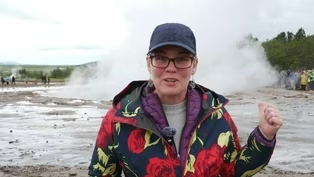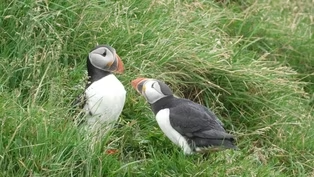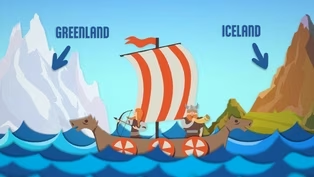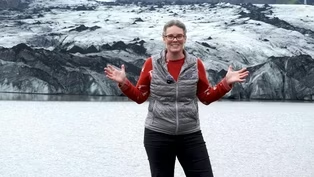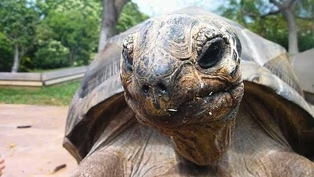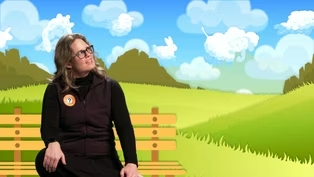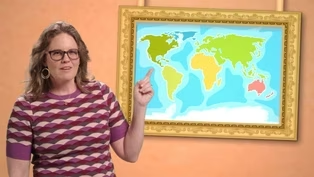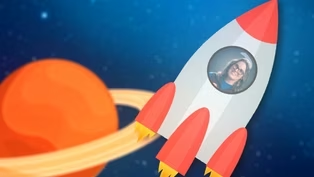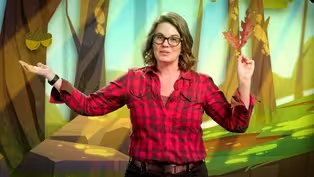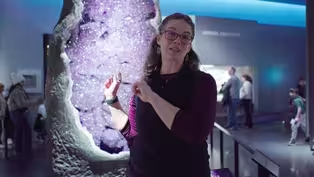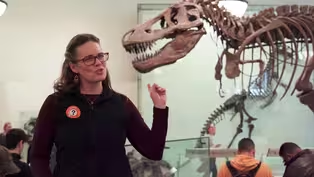But Why – A show for curious kids
Why does Iceland have so many volcanoes?
8/1/2025 | 1m 46sVideo has Closed Captions
Why does Iceland have so many volcanoes?
Volcanoes are famous for their explosive energy and the hot lava that bubbles and oozes out. They can be extremely destructive but are also beautiful forces of nature. In one country, Iceland, there are a LOT of volcanoes, but they've figured out how to use that lava for good.
Problems playing video? | Closed Captioning Feedback
Problems playing video? | Closed Captioning Feedback
But Why – A show for curious kids is a local public television program presented by Vermont Public
But Why – A show for curious kids
Why does Iceland have so many volcanoes?
8/1/2025 | 1m 46sVideo has Closed Captions
Volcanoes are famous for their explosive energy and the hot lava that bubbles and oozes out. They can be extremely destructive but are also beautiful forces of nature. In one country, Iceland, there are a LOT of volcanoes, but they've figured out how to use that lava for good.
Problems playing video? | Closed Captioning Feedback
How to Watch But Why – A show for curious kids
But Why – A show for curious kids is available to stream on pbs.org and the free PBS App, available on iPhone, Apple TV, Android TV, Android smartphones, Amazon Fire TV, Amazon Fire Tablet, Roku, Samsung Smart TV, and Vizio.
Providing Support for PBS.org
Learn Moreabout PBS online sponsorshipMore from This Collection
Fun facts about the Earth and beyond!
Why is Iceland green and Greenland icy?
Video has Closed Captions
Why is Iceland green and Greenland icy? Asks a number of viewers. (2m 39s)
Video has Closed Captions
How are glaciers formed? Asks Eena from British Columbia. (2m 29s)
Are there animals or plants that can live forever?
Video has Closed Captions
Are there animals or plants that can live forever? Asks Eleanor from New York. (2m 25s)
Video has Closed Captions
Why are continents so big? Asks Oscar from New Zealand. (2m 16s)
Can I run on the rings of planets?
Video has Closed Captions
Can I run on the rings of planets? Asks Iola from New York. (2m 13s)
Video has Closed Captions
How do seeds grow into trees? Asks Job from Conecticut (2m 13s)
Video has Closed Captions
How are geodes made? Asks Esther from Massachusetts. (1m 53s)
Video has Closed Captions
What is a Solar Eclipse? Asks Camila from Dobbs Ferry ,NY (1m 53s)
Why do T-Rexes have small arms?
Video has Closed Captions
Why do T-Rexes have small arms? Asks Grigor from Switzerland. (2m 1s)
Providing Support for PBS.org
Learn Moreabout PBS online sponsorshipI'm standing in a hot spot, literally, for geothermal and volcanic activity.
I'm in Iceland, one of the most volcanically active regions in the world.
In fact, every day, scientists here are monitoring more than 30 volcanoes.
You might think with all that volcanic activity, it could get a little chaotic.
But let's find out how people in Iceland are using geothermal activity to their advantage.
Iceland sits right on top of what's known as the Mid-Atlantic Ridge, where the North American and Eurasian tectonic plates are slowly drifting apart.
That movement of the tectonic plates can cause earthquakes.
But this island is also what's known by geologists as a hotspot, where the underlying ground is warmer than the surface area above.
This combination makes for a lot of volcanic activity.
That sounds kind of scary, but it's actually something Iceland has adapted to.
Most of Iceland's energy comes from its unique geological circumstances.
Heat from magma under the surface and underground water reservoirs powers around 70% of the country.
It's used to heat homes and swimming pools and melt snow on streets.
Iceland may be a small country, but it is mighty in its understanding of geothermal activity, making it a global leader in clean energy, powered by the volcanoes that shaped its landscape.
To make sure you never miss But Why, like this video and subscribe to our channel and find out more at butwhykids.org.

- Science and Nature

Explore scientific discoveries on television's most acclaimed science documentary series.

- Science and Nature

Capturing the splendor of the natural world, from the African plains to the Antarctic ice.












Support for PBS provided by:
But Why – A show for curious kids is a local public television program presented by Vermont Public
